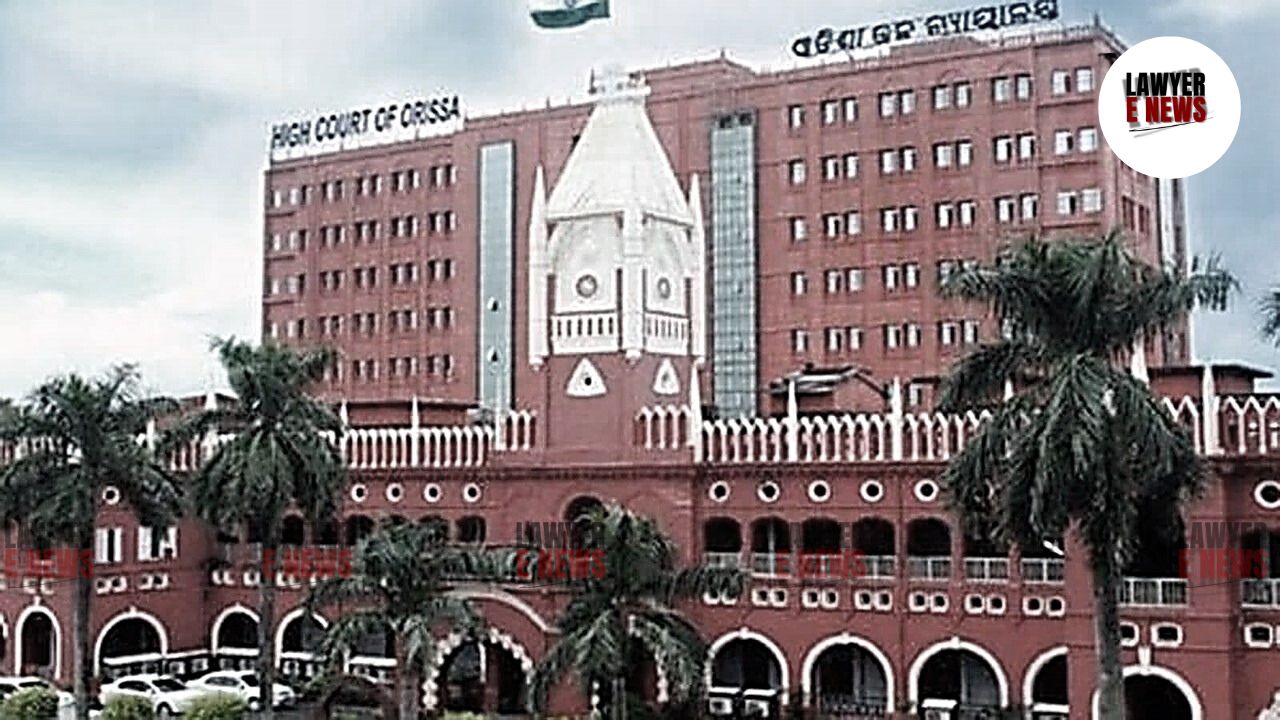-
by Admin
15 February 2026 2:36 AM



In a significant judgment, the Orissa High Court has upheld the conviction of a minor for committing sexual offences under Section 377 of the Indian Penal Code (IPC) and Section 6 of the Protection of Children from Sexual Offences (POCSO) Act. However, in a modification of the detention order, the court ruled that the time the child-in-conflict-with-law (CCL) has already spent in custody suffices, thus shortening the original period of detention. The judgment was delivered by Dr. Justice S.K. Panigrahi on September 6, 2024.
The case involved the sexual assault of a 4-year-old boy in the village of Jayantipur, Odisha, by a 14-year-old minor (Bibhu Prasad Behera), referred to as the CCL. According to the complaint, on December 3, 2022, the victim was lured away while playing and assaulted. The incident, which involved forced oral and anal penetration, was reported by the victim's father, leading to charges under Sections 377 and 506 of the IPC and Section 6 of the POCSO Act. The Juvenile Justice Board (JJB) had initially sentenced the CCL to two years of detention in a place of safety.
The primary contention raised by the defense was the lack of independent witnesses and material contradictions in the prosecution's case. The defense argued that the only witnesses presented were related to the victim, and none of the children playing with the victim at the time were called to testify. It was also suggested that the case was fabricated due to a pre-existing family dispute.
However, the High Court observed that while no other children testified, the victim's testimony was consistent and credible. The Court noted that the evidence of P.W.3 (the victim) was "clear, cogent, and trustworthy," and corroborated by the medical report. Despite the absence of independent witnesses, the victim's account was deemed sufficient to sustain the conviction.
The court particularly emphasized the reliability of the victim's testimony. The child described the assault in detail, identifying the perpetrator and narrating the incident without inconsistencies. The court rejected the defense’s claim of false implication, citing the absence of animosity or motive to fabricate such serious charges. “The victim’s testimony was free from infirmities and the absence of independent witnesses does not dilute the strength of the prosecution’s case,” the bench remarked.
Addressing the nature of the offense, the court underscored that cases under the POCSO Act often rely heavily on the victim’s testimony, particularly when corroborating evidence is scarce. The court referenced the Juvenile Justice Board’s reliance on the social investigation report, which indicated that the minor had no prior criminal history and acted in a moment of "sexual aggression."
Given the gravity of the crime, the court declined to exonerate the CCL but agreed that the time already spent in custody sufficed as punishment. It reasoned that further detention might not serve the interests of justice or rehabilitation for the minor.
In the judgment, Justice Panigrahi highlighted the severity of the crime while considering the future of the CCL, stating, “Considering the nature of the offense, it would not be proper in the interest of justice to release the CCL under benevolent provisions.” However, the Court balanced this with the observation that keeping the minor in detention any longer was unnecessary, concluding that “sentencing the CCL to the period already served shall serve the ends of justice.”
The Orissa High Court's decision serves as a reminder of the delicate balance between punishment and rehabilitation in cases involving juvenile offenders. By upholding the conviction while modifying the sentence, the court aimed to ensure that justice was served without unduly prolonging the minor's detention. The judgment reinforces the importance of victim testimony in sexual assault cases and underscores the judiciary's responsibility to consider the future rehabilitation of juvenile offenders.
Date of Judgment: September 6, 2024.
Bibhu Prasad Behera vs. State of Odisha
